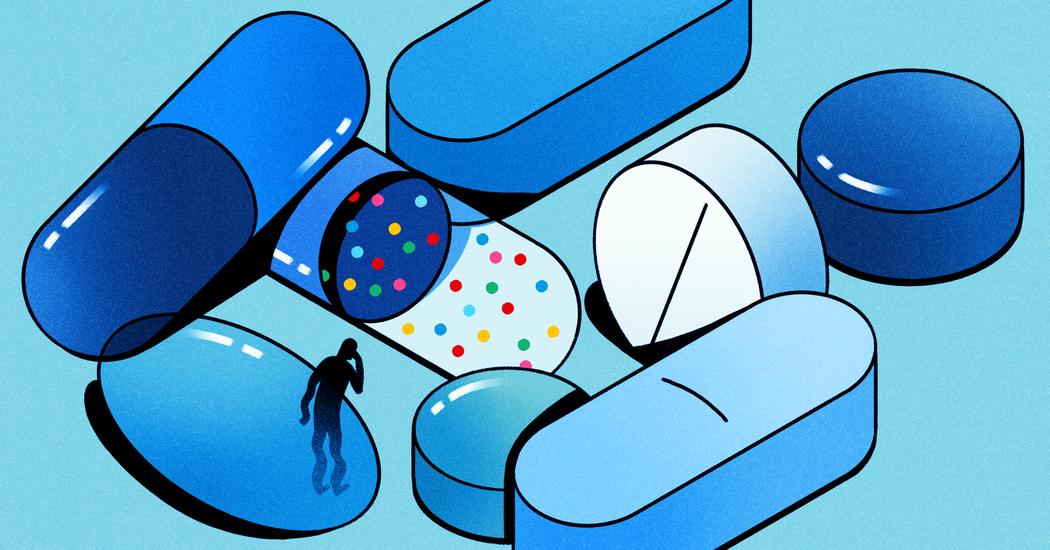Facts and common misconceptions about some of America’s most widely used drugs.
Antidepressants are among the most prescribed medications in the United States. This is, in part, because the number of people diagnosed with depression and anxiety has been on the rise, and prescriptions jumped sharply among some age groups during the pandemic.
Despite the prevalence of these medications, some patients have “significant misconceptions” about how the drugs work, said Dr. Andrew J. Gerber, a psychiatrist and the president and medical director of Silver Hill Hospital in New Canaan, Conn.
About 80 percent of antidepressants are prescribed by primary care doctors who have not had extensive training in managing mental illness.
Dr. Paul Nestadt, an associate professor of psychiatry at the Johns Hopkins School of Medicine, said patients tell him, “‘You know, Doc, I’ve tried everything.’” But often, he said, “they never got to a good dose, or they were only on it for a week or two.”
Here are some answers to frequently asked questions about antidepressants.
How do antidepressants work?
There are many types of antidepressants, and they all work a bit differently.
In general, they initiate a change in the way brain cells — and different regions of the brain — communicate with one another, said Dr. Gerard Sanacora, a professor of psychiatry at the Yale School of Medicine.
